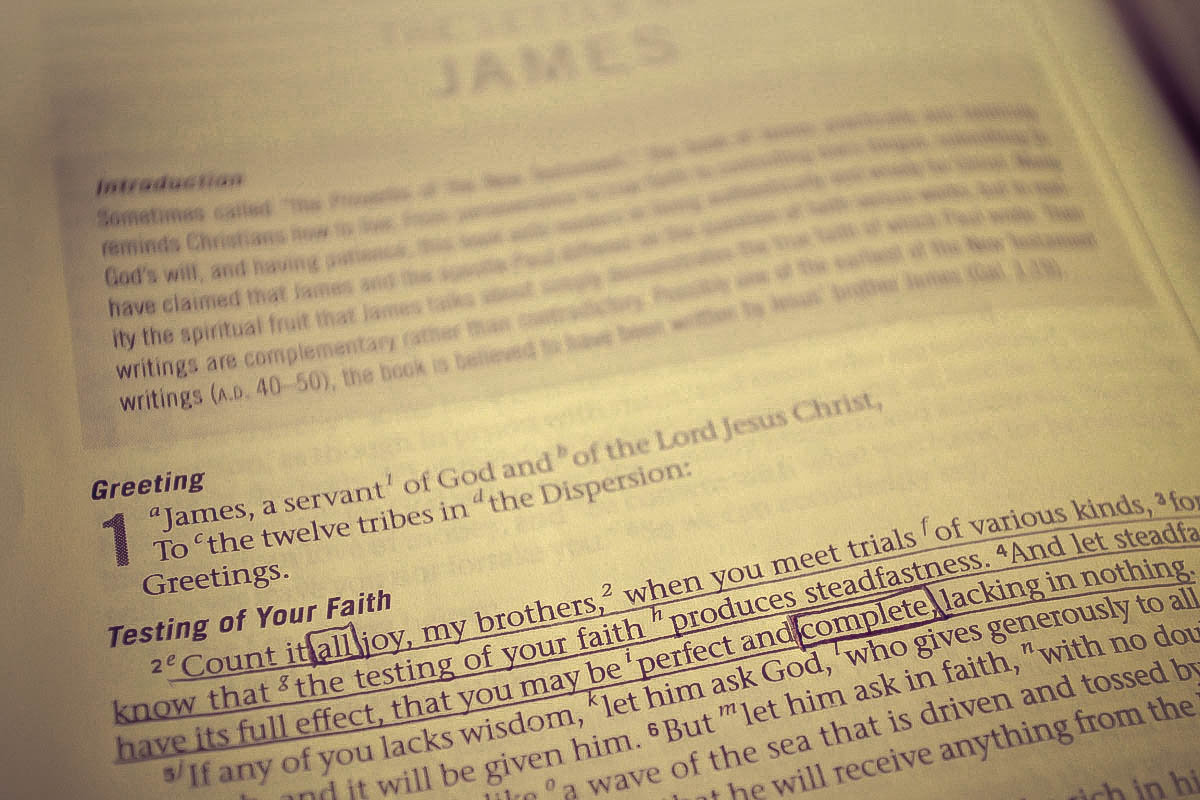In the Bible, James writes, “Count it all joy, my brothers, when you meet trials of many kinds” (James 1:2).
Sounds crazy, doesn’t it? But James is on the money when he calls trials “the testing of our faith.” Spurgeon also nails some of the reasons to consider trials pure joy. He even speaks of the “invaluable blessing” which is gained by the trial of our faith. What is that blessing? Simply this: trials test and prove our faith.
TRIALS TEST THE ENDURANCE OF YOUR FAITH
The way of testing if you are a good soldier is to go into the battle. The way to try whether a ship is well built is not merely to order the surveyor to examine her, but to send her to sea; a storm will be the best test of her strength. As unpleasant as the battle and the storm are, we discover this: it’s a great mercy to have your salvation proved to you under trial.
FAITH IS NOT GUESS-WORK
We might have heard and believed the gospel, but when we’ve faced trial and found comfort in the gospel we’re certain of its truthfulness. When circumstances are miserable but still the gospel gives us joy and gladness, we know how true it is. Experiential knowledge is the best and surest; by experience we know our faith is not guess-work, for we see and feel and taste it for ourselves. Spurgeon says:
“I reckon that the endurance of every imaginable suffering and trial would be a small price to pay for a settled assurance, which would for ever prevent the possibility of doubt. Never mind the waves if they wash you upon this rock. Therefore, when you are tempted, “Count it all joy” that you are tried, because you will thus receive a proof of your love, a proof of your faith, a proof of your being the true-born children of God. Trials are like a fire; they burn up nothing in us but the dross, and they make the gold all the purer. Put down the testing process as a clear gain, and, instead of being sorry about it, count it all joy when you fall into many trials, for this gives you a proof of your faith.”
In Psalm 16:8 David says, “I have set the Lord always before me. Because he is at my right hand, I will not be shaken.” It’s an unusual phrase but “to set the Lord before me” is to recognize his presence and his constant help. As Jerry Bridges puts it, “Trust is not a passive state of mind. It is a vigorous act of the soul by which we choose to lay hold on the promises of God and cling to them despite the adversity that at times seeks to overwhelm us.”
TRUST IS NOT PASSIVE
Trusting God is something we must choose to do. It’s an action. It’s not passive. It’s not natural. Our natural disposition is to trust ourselves, which is daft. We are often powerless over our circumstances and we are often fickle and untrustworthy. No wonder we get anxious. God is infinite in his power, unchanging in his love and always faithful in all he does. Trusting him makes sense. David knew this. He was a warrior of great skill and courage, but even he was scared sometimes. Repeatedly in the Psalms we find his determination to trust God despite all appearances: “In God I trust, I shall not be afraid” (Psalm 56:11).
It’s a great mercy to have your salvation proved to you under trial.
This side of the cross we have even more reason to trust God: “He who did not spare even his own Son but gave him up for us all, how will he not also with him graciously give us all things?” (Romans 8:32). And “we know that for those who love God all things work together for good, for those who are called according to his purpose” (Romans 8:28). God causes everything to work together for the good of those who love him. Everything. That’s good news!








